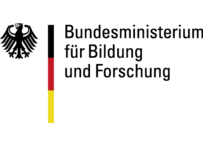Network for the law of civil security in Europe (KORSE)
Motivation
In European as well as in national security research, aspects of jurisprudence are of major importance. This is a chance for German jurisprudence to take an active part in shaping European security research. All the same, legal scholarship still is underrepresented in European security research. Equally, the participation of German jurisprudence in European security research may still be enhanced.
For these reasons, the Centre for Security and Society at the University of Freiburg, the German Police Academy of Münster so as the Bucerius Law School of Hamburg and the Alexander von Humboldt Institute for Internet and Society of Berlin aim at strengthening the contribution of German legal scholarship to European civil security research by way of the KORSE-Programme, supported by the Federal Ministry of Education and Research.
Aims
KORSE is intended to become a German network with Europe-wide impact. It is meant to grow sustainably, involving partners from Germany and Europe, and to become a first address for legal issues related to European security research. This will aim at supporting German applicants in European security research.
The core of KORSE will be the aforementioned partners. During the project retention period, subsequent partners from Germany and Europe will be associated for further increasing the academic excellence of the network, as well as its noticeability in Europe. For this, several measures are planned.
Within the KORSE-project, junior researchers will inquire the theoretical and practical challenges of civil security in a united Europe. This will enable them to participate in as well as advancing the transnational, interdisciplinary discourse on security issues.
Furthermore, KORSE will award short period fellowships to experts on international law of civil security and thereby connect the national and European discourse both in terms of persons and of topics. The inclusion of these fellows in KORSE will lead to a particularly high degree of internationality already at the stage of designing the research questions. The inclusion of these fellows will benefit the quality of security law research in Germany, and at the same time make the German discourse noticeable at the European level and enable it to participate in the European discourse on security law.
Contents
The KORSE project work aims at the theoretical, doctrinal, and practical aspects of the advancing Europeanisation, internationalisation and globalisation of security law.
At the theoretical level, fundamental questions of a Europeanised security law will be dealt with. Firstly, this will concern fundamental normative questions on the balancing of security and freedom in a multilevel system of democratic orders, shaped by human rights, and questions on the relations between different ideas of security and the law. For example, the capacity of new key concepts in the security discourse, such as resilience, will be examined. Secondly, fundamental theoretical terms, such as threat or risk, will be developed in a European law context. Dealing with the fundamental normative and theoretical questions is a necessary condition for the complementary research of ethics, which is increasingly demanded and supported, also on the European level.
At the doctrinal level, a systematic and constructive conceptual approach to the law will help developing a deeper understanding of security law. Sustainable solutions to problems of Europeanisation and internationalisation, fitting into the existent legal framework, will be developed in order to provide reliable benchmarks for the legal practice. This involves comparing the German law with the law of particular Member States and the European Union law.
At the practical level, references will be made to activities of security agencies as well as recent technological developments in order to develop adequate forms of regulation for them.
Another focus will be placed on interdisciplinary co-operation of the particular legal subjects the law traditionally is divided into, i.e. in horizontal terms: criminal law, private law, and public law, and in vertical terms especially European and international law. This is based on the conviction, that the problems of security law cannot be isolated either way: similar to the fact that nowadays, a mere national perspective cannot prevail, the development of solutions may not end at the borders of criminal, private or public law. Especially in European law, which does not recognise such a strict division of the particular legal disciplines, questions of security law are included in all fields of law. This may be exemplified by the law of data protection, which traditionally involves a merger of private law, public law, and criminal law elements.
The 7th EU Framework Programme for Research and Technological Development and the future Framework Programme for Research and Innovation (Horizon 2020) as well as the Framework Programme of the Federal Government for Civil Security Research 2012-2017 will give guidelines for possible projects for supported junior researchers. This may include combating terrorism and transnational organised crime, border observation, cyber security, resilience of infrastructure, or the future of the right to informational self-determination and the right to privacy as well as security aspects of the law of emergency management and the law of science and research in the context of the dual use problem.
The partners of the Centre for Security and Society, the German Police Academy and the Claussen-Simon-chair for international law of the Bucerius Law School, will, within the KORSE project, mainly focus on the subjects “network-based security of interlinked police forces” and “maritime security”.
Supported by:

Duration: 01.12.2012 - 31.08.2016
Project management: Prof. Dr. Ralf Poscher
Support: Bundesministerium für Bildung und Forschung (BMBF)